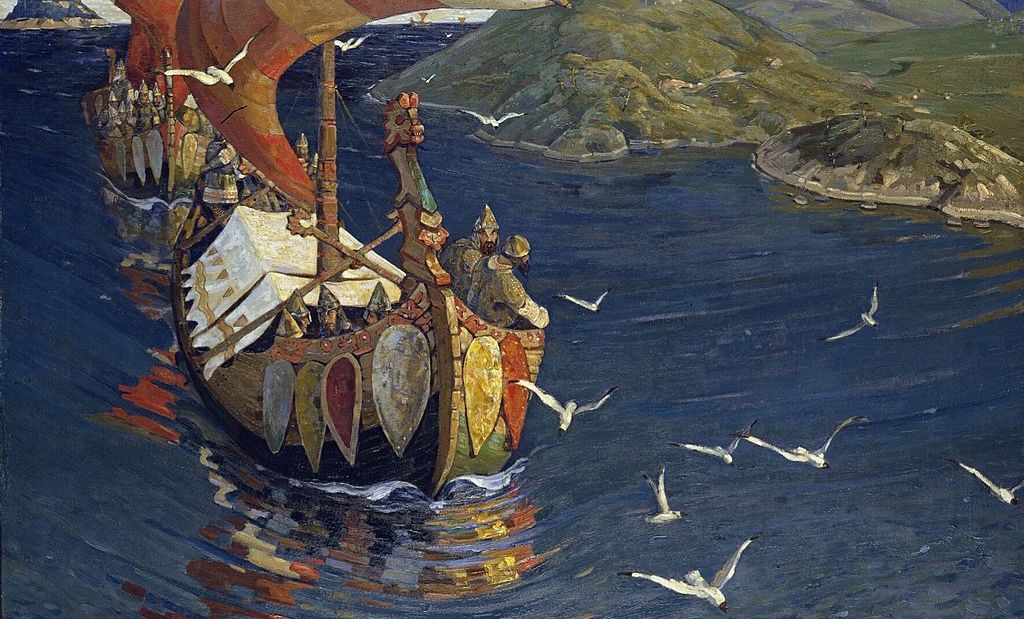When a Saint bashes you, things must be pretty bad. But when he says you’re not worth the words, they’re definitely worse. And when the Saint in question is an uncontested authority on asceticism—and you’re a monk vowed to live the ascetic life—you’ve pretty much hit rock bottom.
The very first chapter of St. Benedict’s Rule is about the different kinds of monks. After discussing Cenobites (who live together), Anchorites or hermits (who live by themselves), and “Sarabaites” (who live for themselves), the chapter ends with the worst kind of monks, the “Gyrovagues.”
Benedict does not have nice things to say:
These spend their whole lives tramping from province to province, staying as guests in different monasteries for three or four days at a time. Always on the move, with no stability, they indulge their own wills, succumb to the allurements of gluttony, and are in every way worse than the Sarabaites. Of the miserable conduct of all such, it is better to be silent than to speak.
Saintly excoriation is never a pretty thing to look at, but it’s worth considering why these monks warrant such holy wrath.
One way to understand the wickedness of these monks would be to focus on the second half of the description: Gyrovagues are the worst of all monks because they “indulge their own wills” and “succumb to the allurements of gluttony.” But, on their own, these traits don’t make Gyrovagues “in every way worse than the Sarabaites.” Indeed, if that was it, Gyrovagues would seem to be nothing more than really bad Sarabaites.
So the key to understanding why Gyrovagues are the worst kind of monk must lie in the first part of the quote: they “tramp from province to province . . . always on the move, with no stability.” At least Sarabaites stay put.
Fortunately for laypeople and itinerant friars alike, St. Benedict is not condemning anyone who dares to go out-of-doors. His point is much deeper: true holiness is about stability—stability in faith, stability in hope, stability in love.
The exterior wandering of the Land-loper (a delightfully British translation of “Gyrovague”) marks him out as the worst kind of monk precisely because it is a sign of his interior instability. In their hearts, such men are pulled here and there, this way and that, by countless desires for created things that have only this in common: none of them is God. The truth of St. Augustine’s beautiful phrase “our hearts are restless until they rest in you” is verified in the restlessness of these monks who refuse to let themselves rest in God.
This is a lesson we could all do well to hear. Life gets cluttered, and it’s easy to find our attention diverted from what really matters. Our hearts can become restless even when we’re busy doing good works. Anxiety, cares, and stress can wrap around our hearts like vines, choking the charity within.
When we find ourselves in this position, Benedict’s Rule offers us a sure remedy: stability. Christ is our rock. He is the one necessary thing. If we abide in him, he will abide in us. To him the psalmist says, “Apart from you I want nothing on earth,” and to this single-minded devotion, Jesus responds by saying “come to me, all you who are weary and are burdened, and I will give you rest.”
This is not a message reserved for monks. Every Christian is called to an absolute purity of heart, a complete sincerity of intention. The Christian life and growth in holiness is about one thing: making God the only desire of our hearts.
So when we find ourselves distracted or anxious, when we find ourselves “tramping from province to province” in our minds, “always on the move, with no stability,” here’s a practice to help keep us from becoming the worst kind of Christian: turn off the television, turn off the radio, turn off the lights; set everything you’re doing aside; then take a few moments to let your mind rest on a single line from Psalm 46:
Be still, and know that I am God.
✠
Image: Nicholas Roerich, Guests from Overseas.







